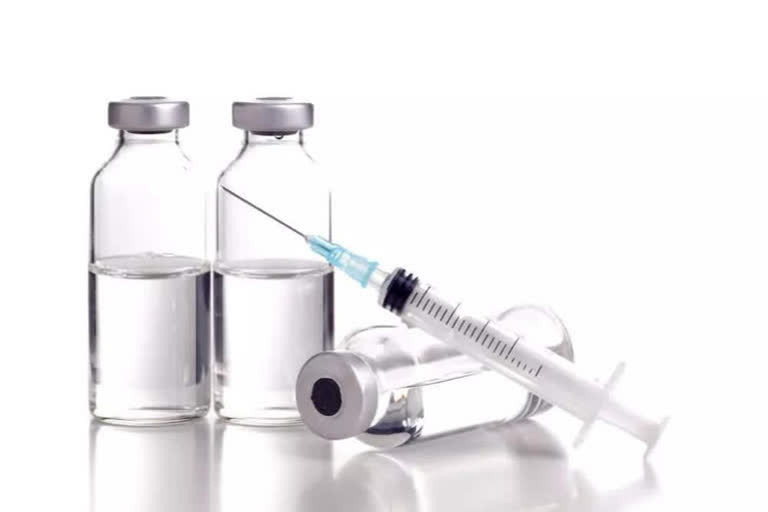London: An 87-year-old Indian-origin man from the northeast of England will become one of the first people in the world to get a vaccine against COVID-19 when he receives his Pfizer/BioNTech jab at a hospital in Newcastle on Tuesday.
Hari Shukla from Tyne and Wear said he feels it is his duty to receive his first of the two-dose vaccine, a moment UK Prime Minister Boris Johnson hailed as a “huge step forward” as Tuesday was dubbed “V-Day” or Vaccine Day in the UK.
“I’m so pleased we are hopefully coming towards the end of this pandemic and I am delighted to be doing my bit by having the vaccine, I feel it is my duty to do so and do whatever I can to help,” said Shukla.
“Having been in contact with the NHS (National Health Service), I know how hard they all work and the greatest respect for them – they have a heart of gold and I am grateful for everything they have done to keep us safe during the pandemic,” he said.
Shukla was notified by the NHS based on the criteria set by the UK’s Joint Committee on Vaccination and Immunisation as part of a phased rollout plan based on those at the highest risk of death from the deadly virus. People aged 80 and over, care home workers as well as NHS workers who are at higher risk will be first in line to receive the "life-saving jab"
“Today marks a huge step forward in the UK’s fight against coronavirus, as we begin delivering the vaccine to the first patients across the whole country. I am immensely proud of the scientists who developed the vaccine, members of the public who took part in trials, and the NHS who have worked tirelessly to prepare for rollout,” said Johnson.
However, the UK PM struck a note of caution to warn that mass vaccination will take time and urged the public to remain “clear-eyed” and continue to follow the lockdown rules over the winter months ahead.
The NHS said it is undertaking the biggest and most highly anticipated immunisation campaign in history at 50 hospital hubs, with more starting vaccinations over the coming weeks and months as the programme ramps up after the first set of doses arrived from Pfizer's manufacturing site in Belgium.
READ: Long-term strategies needed to tackle future pandemics: India at UNGA
“We will look back on today, V-day, as a key moment in our fight back against this terrible disease, and I am proud our health services across the United Kingdom are about to embark on our largest ever vaccination programme,” said UK Health Secretary Matt Hancock.
“With over-80s and frontline health and care staff receiving their vaccinations from today, the whole country will breathe a collective sigh of relief as our most vulnerable loved ones start to be given protection from the virus. Now’s the time to sit tight and remain patient until you get notified by the NHS that it’s time for your vaccination,” he said, adding that the light at the end of the tunnel is visible but there is still a long way to go.
Since the Pfizer/BioNTech vaccine got the green light from the UK''s Medicines and Healthcare products Regulatory Agency (MHRA) last week, the NHS said its workers have been working around the clock to manage the large-scale logistical challenge of deploying the vaccine.
“Coronavirus is the greatest health challenge in NHS history, taking loved ones from us and disrupting every part of our lives,” said Sir Simon Stevens, NHS Chief Executive.
“The deployment of this vaccine marks a decisive turning point in the battle with the pandemic. NHS vaccination programmes which have successfully helped overcome tuberculosis, polio, and smallpox, now turn their focus to coronavirus. NHS staff are proud to be leading the way as the first health service in the world to begin vaccination with this COVID jab,” he said.
The Pfizer/BionTech formula is an mRNA vaccine that uses a tiny fragment of genetic code from the pandemic virus to teach the body how to fight Covid-19 and build immunity. It is delivered in two doses of 21 days apart and, according to experts, it has shown a strong immunity response kicking in after seven days of the second dose.
The MHRA has stressed it has been cleared for mass rollout only after “rigorous” safety tests despite the process being speeded up due to the urgency of finding an effective vaccine against a pandemic which has wreaked havoc around the world.
NHS national medical director, Professor Stephen Powis, has warned that the rollout of a vaccine will be a “marathon”, not a sprint.
The Pfizer vaccine needs to be stored at -70C before being thawed out and can only be moved four times within that cold chain before being used. General Practitioners (GPs) and other primary care staff have also been put on standby to start delivering the jab on a phased basis.
Vaccination centres treating large numbers of patients in sporting venues and conference centres will subsequently start up when further supplies of vaccine come on stream, with a bulk of the rollout expected in the early part of the New Year.
PTI



